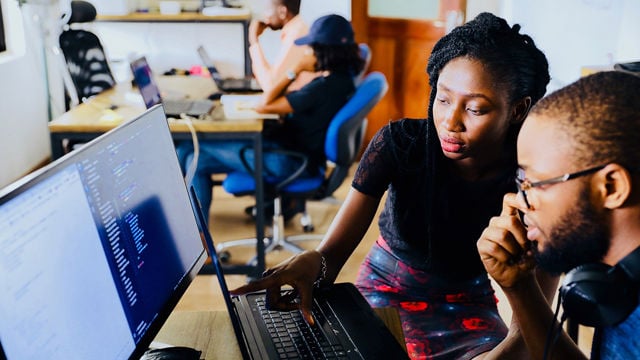The knowledge bank - Norwegian state institutions share expertise to the benefit of public institutions in partner countries

In many of the countries to which Norway provides aid, public administration is weak. Many partner countries require knowledge rather than funding. In response, more and more Norwegian public institutions contribute their experience in areas where Norway has requested expertise.
What
Norwegian state enterprises have experience and knowledge that is useful in aid work. They are therefore part of the Knowledge Bank, a collection of Norwegian state institutions that cooperate with public institutions in other countries. The aim is to strengthen public institutions in partner countries. This will promote sustainable development, because a well-functioning state is essential for bringing about development in a country.
The cooperation takes place between state enterprises in Norway and their equivalent sister organisations in the partner countries. As a general rule, long-term partnerships are created, where the exchange takes place through meetings, exchanges and dialogue.
Capacity development is about contributing to the state in developing countries manage natural resources for the good of the people, as has been achieve by Norway regarding petroleum, fish. and hydro power.
It is about contributing to legislation and a judiciary that remains independent of who wins the next election, about fair tax systems and functioning national audits. It is also about helping countries build systems that enable them to spend their income on offering health services and education to the public.
Naturally, Norwegian solutions can not be transposed directly onto other countries with a different history and institutions, but Norwegian experience can still be useful. By way of long-term knowledge collaboration with Norwegian institutions, bureaucrats of developing countries may benefit from Norwegian experience while developing the solutions that are best suited for their own countries. The fact that the program partners are not only subject experts but also bureaucrats provides extra good opportunity for sharing experience and developing ideas about how public institutions may best fulfill their social mission.
Why
Effective economic governance, service delivery, and civil rights are areas that require a well-developed public administration. In many countries, public administration is under-developed and may lack effective systems and relevant expertise. This can be an obstacle to, among other things, economic growth, fair distribution, and efficient utilization of sustainable resources. Knowledge collaboration between public authorities has been a part of Norwegian aid for many decades, and it has often been shown to produce good results. In all of the focus areas of the Knowledge Bank, new innovative ventures are also developed . In this way, the Knowledge Bank combines proven operations with innovation within several of the most important investment areas in Norwegian development policy.
How
Cooperating countries require advice, knowledge and management in a number of areas in order to develop capacity in the relevant areas. Central themes have consisted of oil, energy, oceans, fish, agriculture, equality, and tax. An overview of knowledge programs is available under the heading "More information".
In many countries, this collaboration spans several decades. One example of the results of this type of cooperation is well illustrated by this report on energy cooperation in Uganda for 30 years.
Who/Where
The partners of the Knowledge Bank are public institutions. Collaboration takes place in several countries, including Colombia, Nepal, Uganda, Mozambique and Tanzania.